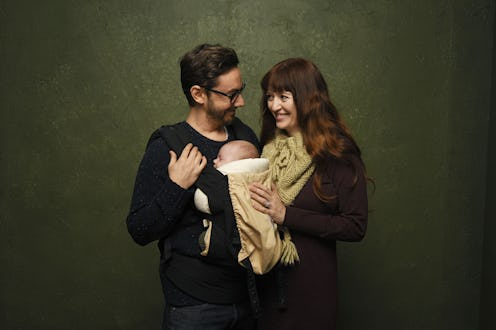Well, this is interesting: postpartum depression apparently isn’t just a mom thing. According to a new study published in the May issue of Pediatrics, it’s a parenting thing —because young dads can get postpartum depression too.
The study examined 10,623 young men who were participating in the National Longitudinal Study of Adolescent Health, tracking the ups and downs of their depression symptoms over 20 years via a 10-question survey they answered every few years. One-third of the participants had become fathers by the time they were in the 24-to-32 age bracket — and in these young men, their depression scores showed a clear shift over time. There was a whopping 68 percent increase of depressive symptoms over the first five years of fatherhood for men who first became dads around the age of 25 — as long as they lived in the same home as their kids. Fathers who didn’t live with their children didn’t have quite the same spike in depressive symptoms, but those men were fewer and further between. The men living with their children also displayed lower depression symptoms before their kids were born, making the increase much more pronounced for them.
A lot is made of how depression in young mothers affects both the women themselves as well as their children (as it should be — postpartum is no joke) — but we talk about it considerably less with regards to young fathers. We definitely should, though; research shows that depressed dads not only interact less with their kids, but also are more likely both to use corporal punishment and to neglect them, too. The results? Awful for the dad, of course, but equally terrible for the children. Said lead study author Dr. Craig Garfield, “Parental depression has a detrimental effect on kids, especially during those first key years of parent-infant attachment. We need to do a better job of helping young dads transition through that time period.”
The thing that makes it tricky is that we don’t understand the reasons why it happens yet. With mothers, we suspect it comes from a mix of stress and the biological changes having a baby wreaks on the body; men’s bodies obviously don’t go through the same thing, although their lives do change dramatically — they might, for example, be feeling financial strain or stress on their marriage.
Something clearly needs to change — and re-framing the conversation about paternity leave is a good start. The suggestion box is open — anyone have any further thoughts?
